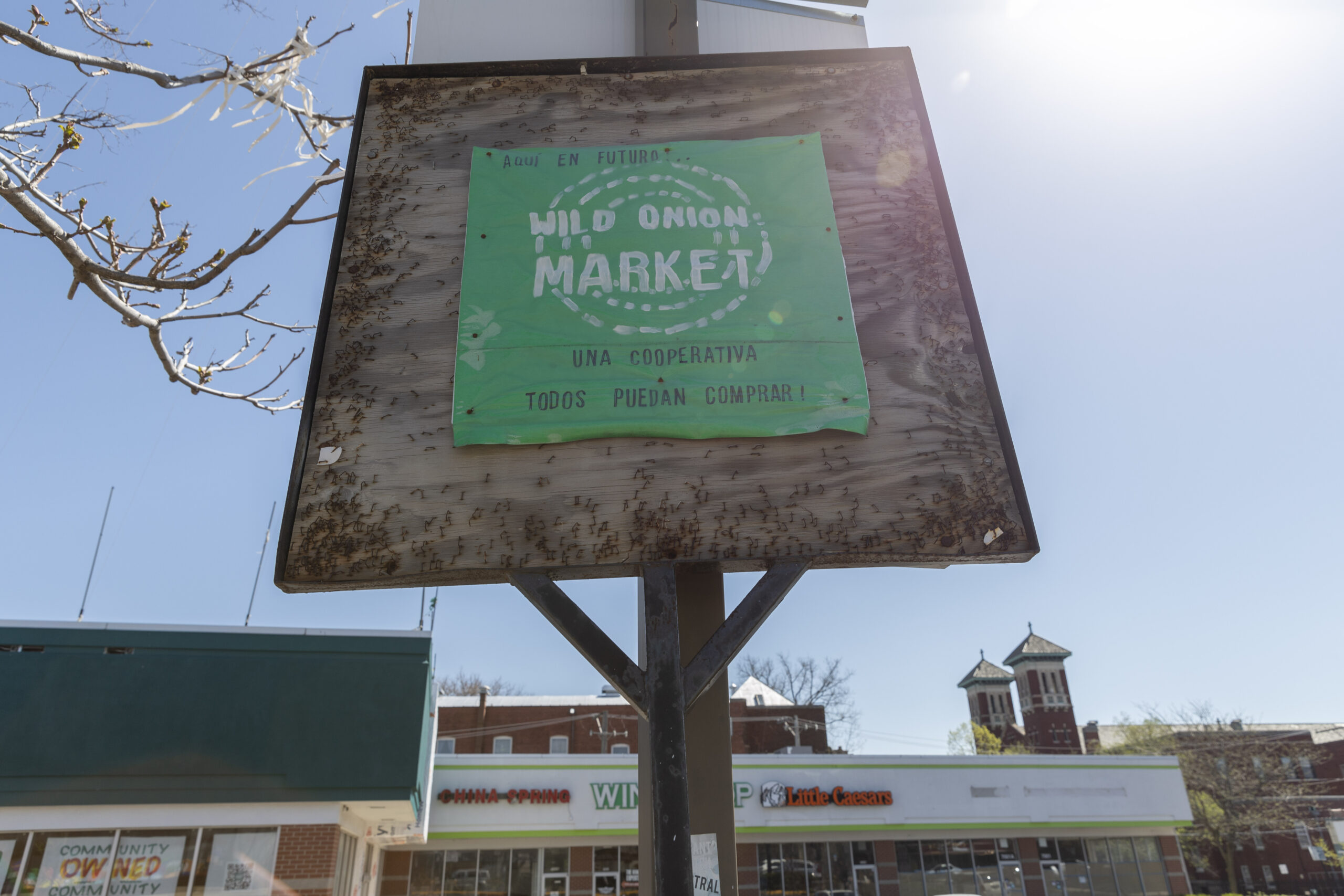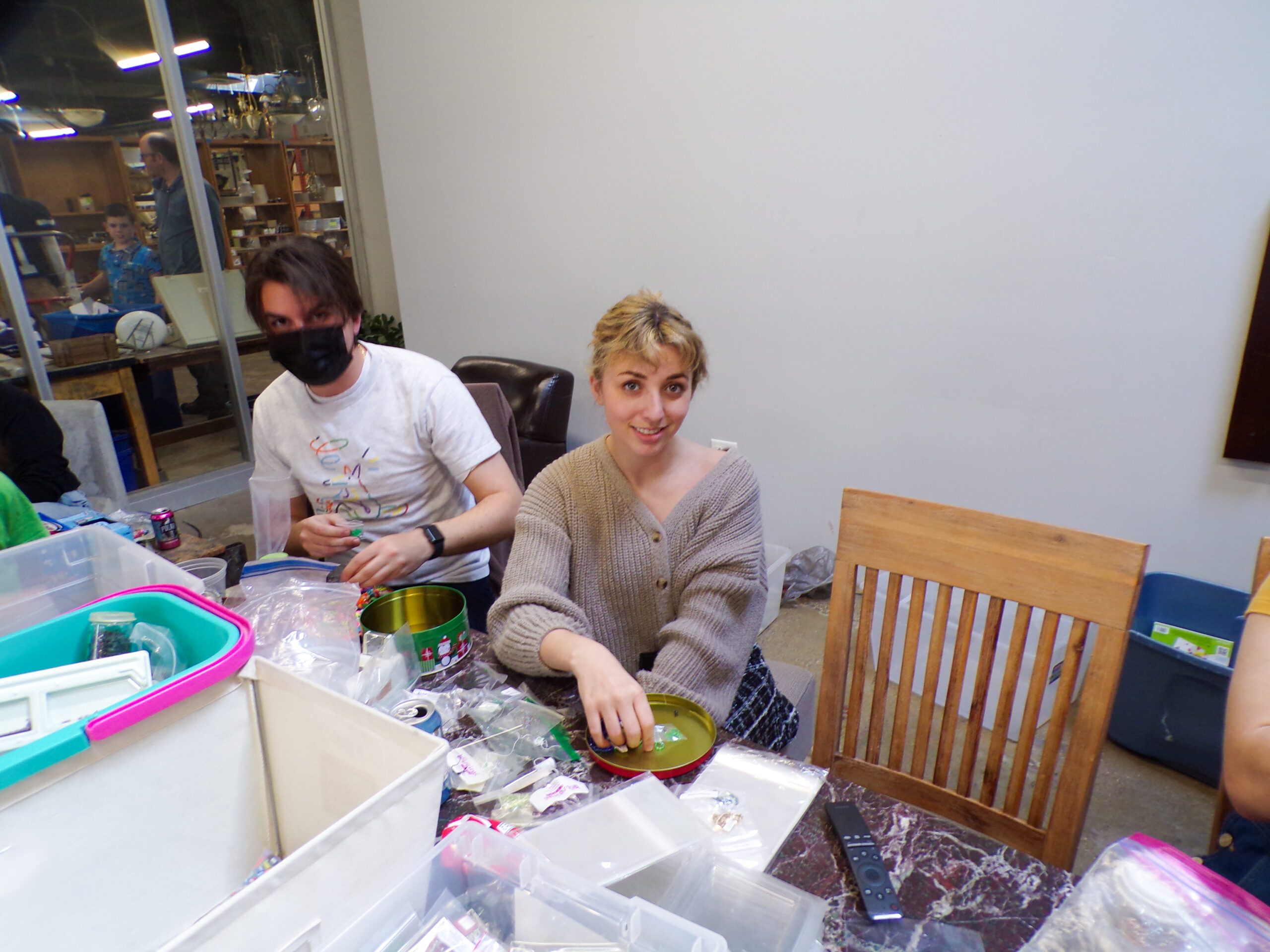New co-op opens in Rogers Park with a dedication to serving both local customers and local produce.
Wild Onion Market is all about local sourcing — local produce, local employees and local opinions. These are at the center of the co-op’s vision and business model, which is set to open in November at 7007 N. Clark St.
Mary Meyer, the founder of Wild Onion Market, has resided in Rogers Park for 30 years. She said since starting the project nine years ago she’s wanted to leave an impact on the neighborhood.
A co-op, shortened from “cooperative,” is a store owned by a collective of people, often customers or employees. Wild Onion is currently owned by 1,530 of its future customers, although the co-op is hoping that number will grow to around 2,000 by the time the co-op opens, according to Meyer.
Each owner pays $250 for their lifetime ownership share, according to their website. Potential owners are also able to get Scholarships. Anyone looking to buy a share in the co-op can apply for a Scholarship of $150 towards their share, according to the Wild Onion website. 1,530 people currently own a share in the co-op and all have a vote in the elections for the Board of Directors, which currently has nine members, according to their website.
Wild Onion aims to build meaningful relationships with farmers and customers within the community and to provide food that is both healthy to those customers and the planet, according to their website. The co-op plans to offer locally-sourced produce alongside bulk dry items like rice and other grains, according to John Calhoun, the general manager of Wild Onion.
Calhoun said he hopes that the co-op won’t just serve residents of Rogers Park but also surrounding communities like West Ridge, Edgewater and Evanston. The co-op is currently working with businesses in surrounding communities, particularly Evanston, to stock their products when the co-op opens, he said.
Meyer said she quickly learned community support is essential for kickstarting a co-op. With immense investor and owner support, Meyer said she’s appreciative of the community’s engagement as the launch of Wild Onion begins.
“So it’s been positive, positive response because obviously, you can’t open a co-op without community support,” she said.
Keeping with the local vision, the co-op’s location was chosen with easy access to public transportation, Meyer said. Additionally, Meyer wants to hire Rogers Park residents that truly reflect the community, she said.
“We want it to be a welcoming space, and when someone comes in to shop, they feel like, ‘I feel welcome here,’” Meyer said. “‘I feel welcomed by the people who work here — they look like me, they act like me.’”
In January 2022, the co-op signed a lease on the former Express Market Place grocery store and began construction a year later this January. Wild Onion is currently in the third stage of their fundraising capital campaign which started in early 2022 and is about $250,000 shy of reaching its funding goal, Meyer said. The co-op’s goal is $1.16 million, according to their website.
There are already three major chain grocery stores students can access around Loyola’s Lake Shore Campus — Aldi, Whole Foods and Target. John Calhoun, the general manager of Wild Onion, hopes the co-op’s commitment to buying local will set it apart from other grocery stores in the area.
Aldi, Whole Foods and Target were not available for requests for comment.
“This was one of the big reasons that initially people began organizing and wanting a co-op in their neighborhood,” Calhoun said.
Meyer said one of the main draws of Wild Onion that will allow it to compete with those larger chain stores is its plan to allow customers to buy in bulk and bring their own containers to fill with bulk products.
Customers being able to buy products in bulk and in their own containers will cut back on the use of single-use plastic by the store and customers, keeping in line with the co-op’s environmental mission, Calhoun said.
Their website refers to the company vision as a “Vibrant Community Where people, planet and our prosperity are connected through food.”
The co-op has focused on getting as much produce as possible within a 200-mile radius of Wild Onion. Buying from local farms in the area was something that mattered to the owners of the co-op, Calhoun said. By supporting local farmers, they’re also supporting the local economy in a way larger grocery stores often don’t, Calhoun said.
Kevin Erickson, the senior manager of sustainable agriculture at Loyola, said the ability and desire of the co-op to work with local farmers and pay them fairly for their labor is incredibly important. Erikson said he first heard of Wild Onion five years ago after talking with some of the organizers.
“Farmers are the lowest paid employees in America, most of them are not union,” Erikson said. “That includes a lot of undocumented people without collective bargaining rights.”
During 2020, farmworkers earned $14.62 on average, according to the Economic Policy Institute. This number was even lower for workers on H-2A visas, with an average of $13.68, and in Florida and Georgia where a quarter of H-2A jobs are located, farmworkers were paid on average $11.71, according to the Economic Policy Institute. The current Adverse Effect Wage Rate (AEWR) for H-2A in Illinois is $17.17 according to the United States Department of Labor.
Calhoun was involved in starting a food co-op in New Orleans and was able to get support from a few of the professors at Loyola University New Orleans.
Calhoun said saw the location of Wild Onion was in the same neighborhood as Loyola and wondered if the school would support the co-op’s mission. With an emphasis on social justice, said he thought both schools would have students and faculty interested in the message of the co-op.
Calhoun said he believes the values and mission of Wild Onion are likely in alignment with the university and the student body.
Since the start of the co-op, founder Meyer said she has been trying to build a relationship with Loyola and did an event in November 2016 with the Loyola nursing program. The nursing students made a presentation on the nutritional value of different foods from around the world and held an event for the community, she said.
Meyer said she wants to expand the relationship between Loyola and the co-op and is currently trying to get institutional support from Loyola.
The co-op has caught the eye of junior Brian Chiu, the co-president of the Student Environmental Alliance on campus. He received a flyer in his mailbox and signed up for their newsletter after seeing it, he said.
“I think that’s really important,” Chiu said. “Just keeping money within the community and encouraging people to shop sustainably and know where their food is coming from.”
Featured image by Holden Green | The Phoenix
-

Audrey Hogan is a third-year student from Morgan Hill, California studying Communications and Political Science. This is her third-year as a writer and second-year on staff as Engagement Editor. She's written about the perils of academic pedigree, table tennis and Peter Gabriel, too. In her free time, she likes to read and walk.
View all posts











